Technical Reports Road pavements
This page lists technical reports of PIARC in the field of Road pavements. These publications are classified chronologically.
-
Contribution to the improvement of the general guidelines for the development, construction / reconstruction, rehabilitation and maintenance of the Trans-African Highway network - (Annex II) (only in French) - Technical Report
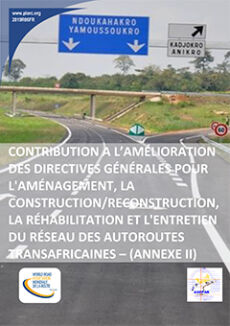
This report is a review, for the purpose of improvement, of Annex II entitled "General Guidelines for the Planning, Construction/Reconstruction, Rehabilitation and Maintenance of the Transfrician Highway Network" of the African Union Intergovernmental Agreement for the Harmonization of Norms and Standards on the Trans-African Highway Network. To this end, the following specific objectives have been set: Examine the conformity of the standards contained in the document in comparison with the [...]
-
Review of the Practical Guide to Pavement Design for Tropical Countries (in French only) - Technical Report
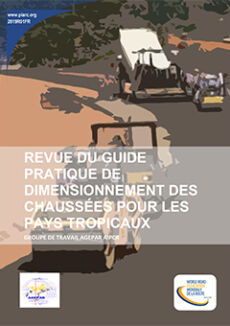
The Practical Guide to Pavement Design for Tropical Countries, published in 1984 by CEBTP, is still a document to which reference is often made in French-speaking African countries. Over the past thirty-five years, major developments have taken place in the pavement sector, particularly in the formulation of pavement materials and the design of pavement layers, while African countries are experiencing strong growth in heavy goods vehicle traffic, requiring the widespread use of pavements on the [...]
-
Expected service life of wearing courses
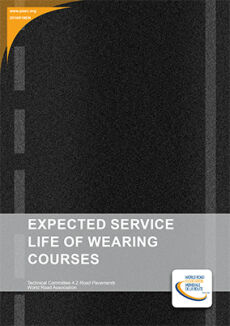
As part of its 2012 to 2015 strategic plan the World Road Association (PIARC) determined the need to identify and review approaches taken in assessing the service life of wearing courses. This report reviews the different approaches taken by road authorities to determine the service life of wearing courses. The aim is to understand why they are replaced and identify the factors that affect decision-making. The service life of a wearing course depends on several factors such as the type of wearing [...]
-
State of the art in monitoring road condition and road/vehicle interaction
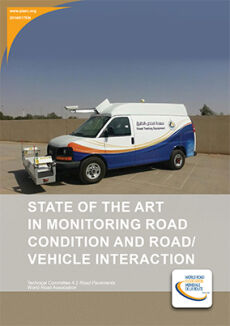
This report summarises the current state of the art regarding the collection of road condition and road/vehicle interaction data, providing an overview of current practice and emerging technologies. Technologies in the development and experimental stages are generally not discussed. The document is intended to concisely inform the reader of the range of technologies available, and not to replicate the considerable detail that is available elsewhere for specific technologies. Each of the commonly [...]
-
Monitoring of innovation in road pavements
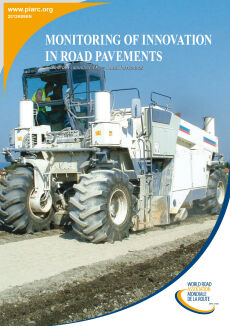
This report examines road administrations and agencies policies for fostering, assessing and implementing innovation in road design and construction. From an international survey, eight types of innovation policies were identified: adaptation of existing specifications; agency led innovation, special organization processes; technical agreements and certification programs; value engineering proposals by contractors before and after contract bid; end-performance and long-term warranty contracts; [...]